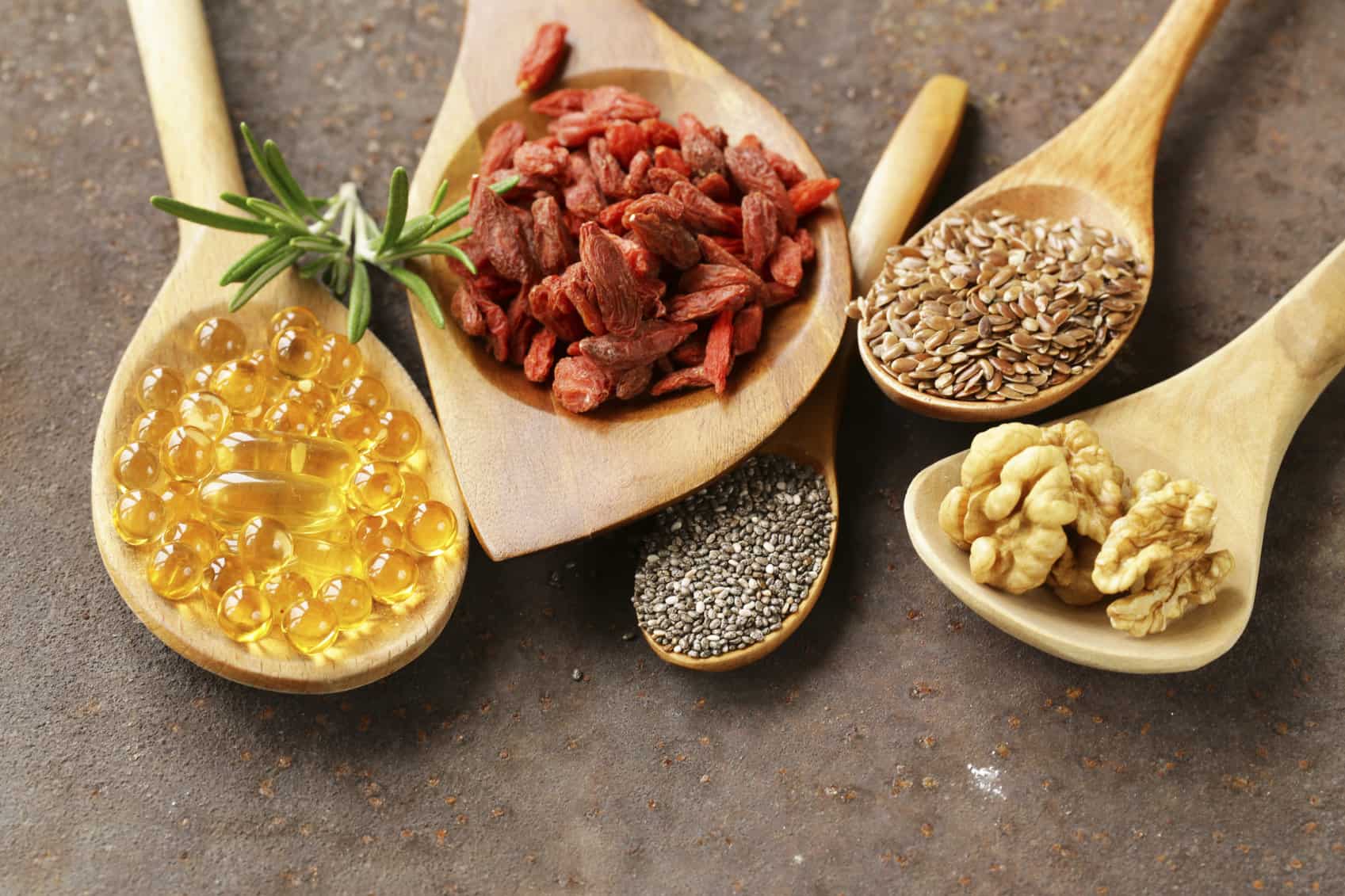
Weight loss supplements aren’t the newest weight loss craze, however, thousands of Australians buy supplements to achieve their weight loss goals each year. There’s an endless selection of supplements available over the counter; claiming to do things such as burn away the fat, keep you fuller for longer and prevent fat from being absorbed into the body.
These supplements all highlight how easy it is to lose weight over a short period of time, with little effort required. At a glance, supplements seem fantastic! I can definitely see the appeal for using them as alternative to dietary control and regular physical activity. So, what does the evidence say? Are these supplements really as helpful as they seem?
Active Ingredients
Active ingredients within weight loss supplements are the specific components believed to play a role in promoting weight loss. Supplements can be made up of one, or multiple, active ingredients and they usually follow popular trends. Often these ingredients are sold in weight loss supplements before the evidence has proven whether they work or not. Here are some of the most common active ingredients found in Australian weight loss supplements. Find out what the evidence really says:
Garcinia cambodia
Garcinia cambodia is a fruit commonly used in India and Southeast Asia for its sour taste. This supplement was first brought to public attention on the Dr. Oz show. It was an amazing new product that ‘melted away fat’ without dietary change or physical activity. The reason for the media hype was because it contains Hydroxycitric acid (HCA). HCA is thought to encourage the breakdown of fat to make it more available to be used as energy. It is also known to keep you fuller for longer. Sprinkling dried Garcinia Cambogia rind on foods does make people feel fuller; so there is some truth to the tale. Unfortunately, Garcinia Cambogia only has a small effect on the body and weight loss is usually insignificant without incorporating a healthy diet and physical activity.
Bitter orange (citrus aurantium)
Bitter orange has been used in traditional Chinese and South American medicines to treat a variety of conditions from a blocked nose to reflux. It is similar to a banned chemical called ephedra, which was commonly used in weight loss supplements in the past. Ephedra was well known to assist weight loss by increasing the amount of fat available for fuel and increasing the body’s metabolic rate. It was banned due to multiple reports of strokes, heart attacks, and psychosis as a result of taking Ephedra. It was also found to worsen conditions such as cardiovascular disease, kidney disease and diabetes. Many of these supplements now use bitter orange in place of ephedra as it is thought it has the same effect on weight loss. Currently, there is insufficient evidence to support the use of bitter orange as an effective weight loss supplement. Some evidence shows it may assist with moderate weight loss but this is only in conjunction with an appropriate diet and physical activity. Taking bitter orange may be not worth the risk because it has a stimulant-like effect, just like ephedra. This means in high enough doses, bitter orange may speed up your heart rate or raise your blood pressure. These effects are then enhanced with caffeine. Overall, the evidence shows bitter orange is unlikely to assist weight loss alone and still requires usual lifestyle modifications for a healthy weight to be achieved.
Green tea extract
Green tea contains chemical compounds known as catechins. One type of catechin called epigallocatechin-3-gallate (EGCG) is considered to be the most effective in assisting weight loss. EGCG is the active ingredient in green tea extract and is present in weight loss supplements at a higher concentration than a usual cup of green tea. It is believed that catechins mixed with caffeine slightly increase a person’s energy output without increasing physical activity. The evidence shows that caffeinated green tea can support modest weight loss in conjunction with a healthy diet and regular physical activity! While this seems promising, it has not yet been proven as an effective weight loss supplement. At this point in time, sticking to a cup of caffeinated green tea is the way to go. Green tea has a number of great properties for good health including improving cardiovascular health.
Green coffee extract (chlorogenic acid)
Chlorogenic acid is the active ingredient found in green coffee extract and believed to promote weight loss. Green coffee extract has the highest concentration of chlorogenic acid of any food, however the evidence on it’s ability to promote weight loss or work effectively as a weight loss supplement is weak or lacking. It’s unknown exactly how green coffee extract assists weight loss, although it’s thought that chlorogenic acid may prevent the absorption of carbohydrates into the small intestine after a meal. While there is a link between coffee and weight loss, this is more likely caused by a mixture of compounds in coffee working together to produce an effect.
Coleus forskohlii (forskolin)
Forskolin is the active compound of Coleus forskohlii, a member of the mint family. The extract from this Asian plant is a common active ingredient in weight loss supplements.
It is native to India and has been used to treat heart disease, colic and respiratory disorders in ancient medicine. Forskolin is thought to release stored body fat to make it more available for use as energy. The evidence shows that effects are different between men and women. Men have shown some weight loss on a trial of forskolin while women on a similar trail did not have any changes in weight. At the moment, the evidence is inconsistent, and results from taking this supplement can be unpredictable. The evidence regarding men is showing promise as a weight loss supplement, but it is not strong enough to recommend.
Chitosan
Chitosan is made from the powdered shells of crabs, shrimp, and lobsters. It is thought that chitosan soaks up some of the fat in the stomach and stops it from being digested and absorbed into the body. Chitosan passes though the body without being absorbed (just like fibre!). The soaked up fat in the chitosan is also expected to pass straight though the digestive system. Preventing the body from absorbing fat may also prevent absorption of important nutrients such as vitamin A, E, D and K. There is little evidence surrounding chitosan and it has not been proven to be effective in weight loss. It may also lead to further health conditions if your body is unable to absorb nutrients properly.
Chromium picolinate
Chromium is an essential nutrient used in the breakdown of carbohydrate, fat and protein into particles small enough for the body to absorb. Chromium is known to increase the activity of insulin and improve glucose metabolism, which can assist the management of diabetes. Chromium is included in weight loss supplements as it is thought to stimulate the production of heat by the body and decrease appetite. Chromium picolinate is one of the several forms of chromium sold as a weight loss supplement. At this point in time, the evidence for using chromium picolinate as an effective weight loss supplement is insignificant and inconsistent.
Saffron (Satireal®)
Satiereal® is a chemical that is derived from an extract of saffron. Saffron is thought to have an effect on mood by increasing serotonin (the happy hormone). Serotonin is believed to be linked with carbohydrates. In theory, eating carbohydrate stimulates the release of serotonin which makes you less likely to crave carbohydrate at your next meal time. For example, if you ate two pieces of bread at lunch, serotonin will be released to make you feel happy and satisfied, because of these feelings you are unlikely to crave more bread or carbohydrate dense foods over the afternoon.
It is expected that saffron will cause the same effect on serotonin as carbohydrate. The antidepressant-like effect is expected to improve mood and reduce snacking or desire to eat. Controlling frequency of snacking may then result in better control of body weight. Currently, there is little evidence to show that there is a connection between saffron extract and weight loss.
Research showed that women have had some success taking Satiereal® as a weight loss supplement to control appetite, but so did the women who took a placebo. It shows promise in controlling appetite while a person makes dietary changes however it will not result in excessive weight loss alone. One thing we do know about saffron is that double the recommended dose (60mg) can cause nausea, vomiting and headaches and exceedingly higher doses may be toxic. If you love saffron, continue to use it in your food and enjoy it!
Caralluma
Caralluma is an edible plant from the cactus family native to India. Among Indian tribal populations, Caralluma is used as an appetite suppressant. It was the perfect portable food to take hunting. The appetite suppressing effect is due to many pregnane glycosides, however how they exactly suppress appetite is still uncertain. The evidence surrounding Caralluma is limited but shows it may assist weight loss by suppressing appetite to reduce intake. The supplement can reduce appetite in some people but not in others and some women have shown minor weight loss using the supplement. Weight loss is only significant when the supplement is combined with a healthy diet and physical activity. It is also not a long-term solution because your appetite is likely to return as soon as the supplement is stopped.
Overall
Some weight loss supplements show promise in controlling appetite and reducing weight but there is simply not enough evidence to show they are all effective, safe to use and a long-term solution. Weight loss supplements can give the illusion of protection against weight gain and this may cause a person to loosen their reigns over their diet making weight loss unlikely. Others may experience a placebo effect. Taking the supplement may cause a person to feel like they are making progress, which encourages them to continue with a healthy diet and exercise.
These supplements are designed to support weight loss in conjunction with a healthy diet and regular physical activity. So, weight loss supplements aren’t a quick fix for weight loss and they are unlikely to be sustainable. It is suggested you speak to your GP before starting any weight loss supplement (even natural/herbal supplements) to make sure you avoid any risks to your health.
This article was written by Michelle Beecher, intern from the University of Canberra at The Healthy Eating Clinic.
If you’d like further help with your nutrition please click below:
References:
Poddar, K, Kolge, S, Bezman, L, Mullin, G & Cheskin, L, 2011. “Nutraceutical Supplements for Weight Loss: A Systematic Review”, Nutrition in Clinical Practice, vol. 26 (5), p: 539-552.
Astell, K, Mathai, M, & Su, X, 2013, ‘A Review on Botanical Species and Chemical Compounds with Appetite Suppressing properties for Body Weight Control’, Plant Food for Human Nutrition, vol. 68, p:213–221.
Mullin, G.E, 2014, ‘Supplements for Weight loss: Hype or Help for Obesity?’, Nutrition in Clinical Practice, vol. 29 (6), p: 842-843.



